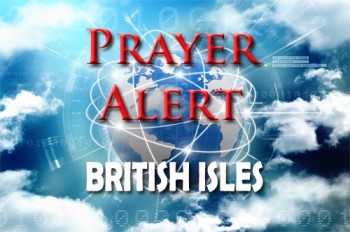Displaying items by tag: nativity plays
Israel / Palestine - child of Bethlehem
Born and raised in Bethlehem, Grace teaches at Bethlehem Bible College and serves her local church. The Holy Land’s Christian population is just 1%. Grace said, ‘Today in Bethlehem, as Christianity continues to dwindle, we trust that the Lord will not leave Himself without a witness in this land. This year, my niece will be Mary in our church’s nativity play. As we watch the children join her as shepherds, wise men and angels, our hearts will be strengthened to know that Christianity still remains the heartbeat of this region, despite its decreasing percentage.
Nativity plays to go ahead despite Covid restrictions
Last month the head teachers’ association confirmed many schools were moving their nativity plays online due to Covid concerns. But recently Boris Johnson said the move to Plan B Covid restrictions does not mean schools and churches should cancel nativity plays. He said, ‘We don’t want kids to be taken out of school before the end of term, we don’t want nativity plays to be cancelled. We think that it is OK to keep going with Christmas parties, but everybody should exercise due caution, have ventilation, wash your hands, get a test before you go - give everybody else confidence they are going to be meeting somebody who is not contagious.’
Polling stations and nativity plays
Election officers have hit back angrily at calls from the education secretary for polling stations not to be placed in schools. Gavin Williamson wanted to avoid disruption to school nativity plays and Christmas concerts, which could clash with the 12 December election. He said that councils would be funded to find alternative venues for polling stations. Election officers have written to the education secretary to express their ‘extreme disappointment’, saying in many areas schools are polling stations because they are well-known local venues and are likely to be accessible for people with disabilities. Often there are not any other practical options.


